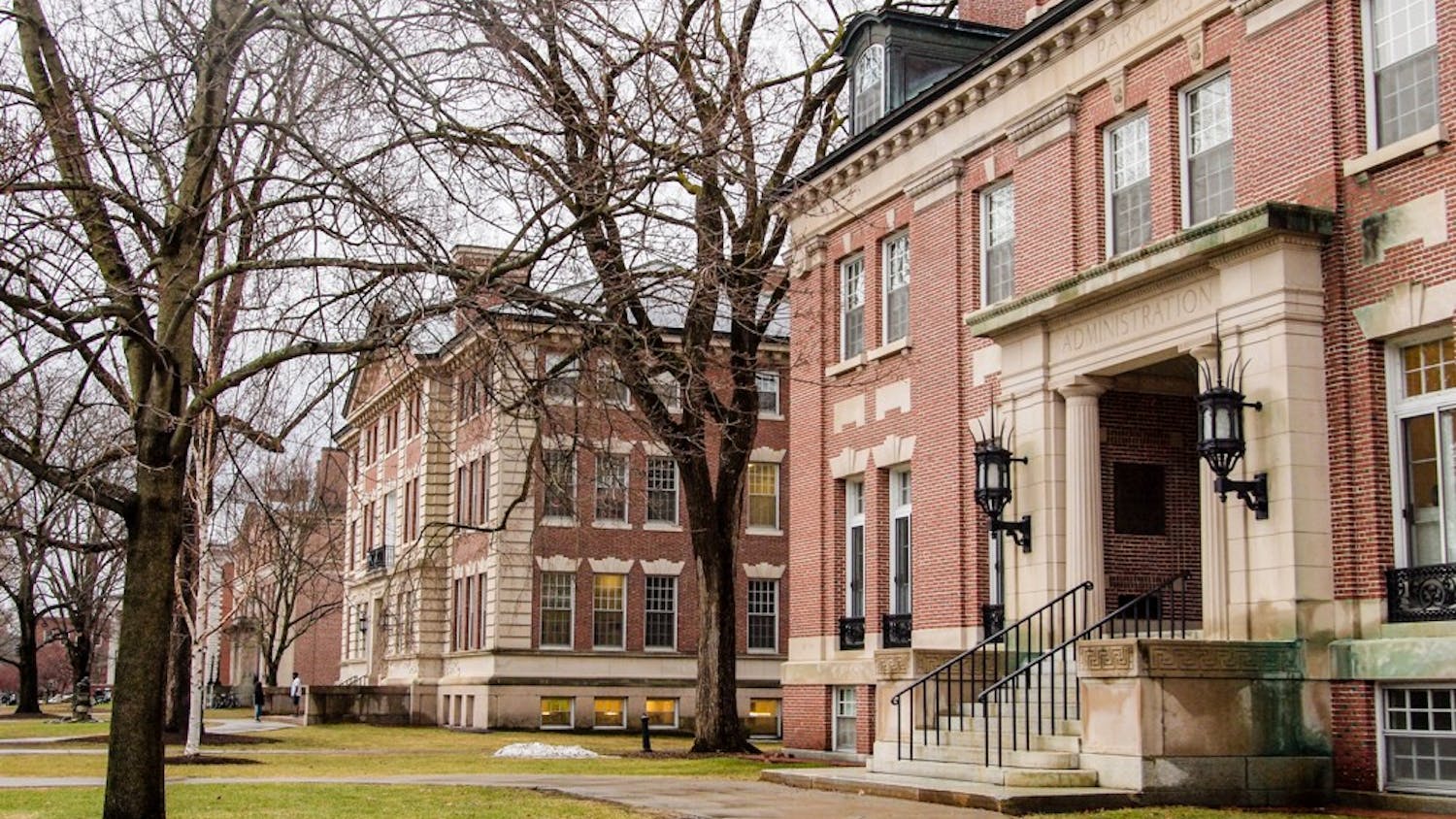In a closed-door meeting during November 1971, Dartmouth’s Board of Trustees voted to allow the matriculation of women at Dartmouth. While students know the outcome of this meeting, they will not be able to know exactly what was said until 2021. The meeting proceedings remain in private archives, inaccessible to the public.
This year’s Student Assembly campaign has brought Board of Trustees transparency back into the spotlight. While the candidates have not debated the release of meeting records — which currently remain closed from public view for 50 years after being submitted to archives — the tickets have both called for increased communication with the Board of Trustees in the hopes of eventually placing a student on the Board.
Among Ivy League institutions, only Cornell University’s board of trustees includes a student representative, though access to its board records is still restricted for 50 years after creation. College archivist Peter Carini noted that the restriction is typical of private institutions, which he noted “tend to be fairly confidential.” He noted that other Ivy League colleges follow similar policies. The boards of trustees of Columbia University and Yale University, for example, also have a 50-year restriction on access to trustee meeting records. Princeton University recently decreased its access restriction from 40 years to 30 years.
Carini said that archive management occurs to ensure personal privacy of other individuals who may be named in the records and to respect the Family Educational Rights and Privacy Act, which protects the privacy of student education records. He added that the Board also wants “their deliberations to be able to happen without people being concerned of their individual name being associated with a decision.”
“Fifty years does seem like a long time,” SA presidential candidate Olivia Audsley ’21 said, adding that “there should be more transparency” in Board decisions. Audsley and her running mate María Teresa Hidalgo ’22 both acknowledged, however, the need to keep identifying information private.
SA presidential candidate Cait McGovern ’21 said that she hopes the Board’s communications will be “more public” in the future and that it will develop a better system for communicating with students.
“It’s hard to know who oversees the overseers,” her running mate Jonathan Briffault ’21 added.
Carini noted that the Board exercises wide-ranging jurisdiction over what gets submitted to the College’s archive. A team of “record analysts” often tries to work with the College, reviewing records to ensure that this is done in a fair way. The Board, however, can override decisions made by this team.
“I’ve never had a situation where I’ve felt really strongly like we were going to destroy something that’s essential to the history of the institution,” Carini said, though he expressed support for decreasing access restrictions from 50 years to 40 years and noted that at times, he has pushed for the maintenance of records that have ended up destroyed.
For example, Carini said that he advocated for a trustee record regarding pay equity at Dartmouth to be kept, but closed to access for 80 years. After discussing with the administration, however, Dartmouth’s general counsels chose to destroy the information.
“There are things that the institution decides that they are going to destroy at a certain point, partially for privacy, but also to protect the institution,” Carini said. He added, however, that “it’s not meant to be a way of hiding things.”
Discussing record-keeping generally, Carini mentioned a sexual assault case in the early 1980s in which a prospective student was allegedly attacked and raped. However, due to identifying information and privacy concerns, the record could not be released to the public.
“By the time I redacted that, there would be so little information that it wouldn’t be worth much,” Carini said. This record ended up being shredded as it was “beyond the normal retention period for records of that type and posed a risk to the individuals involved.”
Carini said that records like this can never be publicly available and are often shredded because “preserving paper is extremely expensive” so “we want to limit [our archives] to the things that are most usable.”
When asked about more sensitive documents, Briffault noted that both transparency and respect for privacy are important to consider.
“Dartmouth is a place that has a sordid past, and we should not be encouraging anyone to cover up for it,” Briffault said, though he acknowledged legal obligations that the College faces.
He added that more sensitive issues should be discussed with interested students, the Board of Trustees, College President Phil Hanlon and legal authorities.
Current SA president Luke Cuomo ’20 said that “having some more formal, regulated, systematic mode of student engagement with the Board would have incredible value” for both the student body and the Board itself.
He said that students retain little control over the Board’s actions, including the release of trustee documents, adding that “as students, we are disadvantaged if we want to hold the Board accountable and make them more transparent” because students have such little interaction with trustees.
Audsley and Hidalgo have said in their campaign platform that having a student Board member would increase the transparency and accessibility of the Board and indicated that they will advocate for a student trustee during their administration.
McGovern and Briffault have maintained instead that having a student on the Board of Trustees should be a “long-term goal,” rather than something they will advocate during their term. In the short term, they plan to focus on increased collaboration with the Board and administration.
“The Board is not excited about [the idea of a student representative],” Briffault said, citing the long history of students advocating for a student trustee, a key issue in last year’s SA election and elections prior.
Audsley said that she believes resistance from the Board is “natural when people start pushing for change,” adding that she would welcome a non-voting student member as well.
Hidalgo added that “the institutions we live in have to change and have to reform” and that “every change starts with people not wanting to give in.”
Although Audsley’s campaign has advocated for a student member on the Board, she acknowledged that getting a student trustee is “a long process” and that she does not think this is something that would happen in her administration. She instead hopes to continue pushing for further talks with the administration with the end goal of eventually putting a student on the Board.
Audsley said that getting a student trustee is going to take “many administrations,” and student organizations working together to create change.
The McGovern campaign emphasized that they are hoping to include student voices by meeting with administrators and setting up regular meetings with Board chair Laurel Richie ’81.
Briffault said that the Board would be more likely to listen to a student who just wants to talk, without the added “demands” for an elected, voting position in the future. He said that “we won’t just try and walk into the room and try to blow everything up.”
Briffault said that he and McGovern want to “meet [trustees] where they are” rather than forcing them to preemptively agree to student input.
Hidalgo noted that having student representation on the Board is especially important given the central role of students on college campuses.
“The students are the people that the university should cater to,” she said.
Audsley added that, for this reason, having a student representative on the Board is an “essential part” of her and Hidalgo’s campaign.
McGovern echoed this idea in the context of her and Briffault’s campaign, mentioning the need for pushing the Board to understand the value of student input.
Briffault added that currently, there is a “lot of misinformation out there about the Board,” noting he believes that ignorance among the student body exists partially due to a lack of communication.
Hidalgo spoke to the ongoing nature of this debate, saying that “it's a win already” that the issue keeps coming up and that “if people continue raising it, then it becomes an issue that the Board of Trustees has to actually confront.”
The Board of Trustees could not be reached for comment by press time.




